Revolutionize healthcare staffing with tailored recruitment strategies for hospitals, private clinics, and nursing homes.
In the dynamic landscape of the medical industry, the demand for skilled healthcare professionals is ever-growing. Hospitals, private clinics, and nursing homes play pivotal roles in providing quality patient care, and building a robust team of healthcare professionals is crucial for their success. In this article, we explore innovative strategies for recruitment in the medical sector, addressing the unique challenges and opportunities faced by healthcare organizations.
1.The Changing Face of Healthcare Recruitment: Trends and Insights
Explore the latest trends in healthcare recruitment, such as the rise of telehealth, the impact of technology, and the importance of diversity in healthcare teams.
2. Navigating the Shortage: Creative Solutions for Talent Acquisition
Discuss the challenges posed by the shortage of healthcare professionals and present creative solutions for sourcing and retaining top talent.
3. Crafting an Attractive Workplace Culture: A Magnet for Healthcare Professionals
Emphasize the significance of a positive workplace culture in attracting and retaining healthcare professionals. Highlight successful case studies of healthcare organizations with exceptional workplace environments.
4. Leveraging Technology in Healthcare Recruitment: AI, Telemedicine, and Beyond
Delve into the role of technology in streamlining the recruitment process, from AI-powered candidate matching to virtual interviews in the age of telemedicine.
5. Tailoring Recruitment Strategies for Different Healthcare Settings
Provide insights into the nuances of recruiting for hospitals, private clinics, and nursing homes. Discuss how to customize recruitment strategies to meet the unique needs of each setting.
6. The Importance of Soft Skills in Healthcare: Beyond Clinical Competence
Acknowledge the significance of soft skills in healthcare professionals and offer tips on assessing and fostering these skills during the recruitment process.
7. Building a Diverse and Inclusive Healthcare Team
Explore the importance of diversity and inclusion in healthcare teams, showcasing the benefits of a diverse workforce in improving patient outcomes and overall organizational success.
8. Nurturing Future Leaders in Healthcare: Succession Planning in Medical Organizations
Discuss the importance of succession planning in healthcare organizations and provide guidance on identifying and nurturing future leaders within the medical workforce.
In conclusion, as the medical industry continues to evolve, so too must healthcare recruitment strategies. By embracing innovation, fostering a positive workplace culture, and tailoring recruitment approaches to the unique needs of hospitals, private clinics, and nursing homes, medical organizations can build resilient and high-performing teams that contribute to the advancement of patient care and overall healthcare excellence.
Healthcare Recruitment 2023: Essential Statistics and Trends
The recruitment strategies in hospitals, private clinics, and nursing homes have evolved significantly, especially in the context of the challenges and opportunities presented in 2023. Here's a comprehensive overview of the strategies, underpinned by relevant statistics and insights from various sources:
Embracing Technology and Automation: A key trend is the increasing use of automation and technological solutions, such as data analytics and artificial intelligence, to streamline recruitment processes and identify suitable candidates more efficiently. This approach helps healthcare organizations quickly adapt to changing needs and scale their recruitment efforts effectively.
Virtual Recruiting and Telehealth Roles: The healthcare industry has rapidly adapted to telehealth and digital healthcare solutions, particularly in response to the pandemic. This shift has created new roles and expectations, making virtual recruiting an essential strategy for efficiently connecting candidates with healthcare organizations. Implementing remote work options is also a significant attraction for potential candidates.
Employer Branding and Online Presence: Establishing a strong employer brand and online presence is crucial. This involves highlighting employee benefits, workplace culture, corporate responsibility, and Diversity, Equity, Inclusion, and Belonging (DEIB) initiatives across recruitment materials and social media platforms. A significant percentage of employees believe that companies must lead with purpose, making it essential for healthcare organizations to showcase their employer brand throughout the recruitment funnel.
Promoting from Within and Employee Nurturing: Healthcare organizations are increasingly focusing on promoting from within and nurturing their employees. This strategy includes providing educational benefits, opportunities for career advancement, and focusing on intrinsic motivators like intellectual challenges and employee engagement. Such approaches not only fill skill gaps but also enhance employee satisfaction and productivity.
Diversity and Inclusion Initiatives: Increasing diversity within healthcare organizations is not only ethically important but also improves accessibility, builds trust, and leads to better patient outcomes. Studies have shown that diverse teams are more likely to outperform non-diverse competitors, making diversity a key component of competitive recruitment strategies.
Investing in Education and Training: Supporting recent graduates through residency programs and investing in worker education and career advancement has shown to improve retention and confidence among new nurses. This approach also aligns with the trend of developing a strong pipeline of qualified candidates.
Revamping Hiring Practices for Speed and Efficiency: Speeding up the hiring process is crucial in the competitive healthcare job market. Strategies include using virtual recruiting tools, automated interview schedulers, and hosting one-and-done hiring events to move candidates quickly through the recruitment process.
Tailored Messaging and Candidate Experience: Crafting specific messages for different employee groups and devising a strong employee value proposition are essential. Healthcare recruiters must demonstrate an understanding of what each candidate group wants, making the candidate feel appreciated, valued, and understood at every stage of the recruitment process.
Mental Health and Well-being Initiatives: Emphasizing mental health care and services in company benefits can significantly drive recruitment and retention efforts. This could include flexible scheduling, remote work opportunities, and wellness programs.
In conclusion, successful recruitment strategies in 2023 for hospitals, private clinics, and nursing homes involve a multifaceted approach that includes technological advancements, virtual recruiting, strong employer branding, internal promotion and nurturing, diversity and inclusion, educational support, efficient hiring practices, tailored messaging, and a focus on mental health and well-being. Each of these strategies plays a vital role in attracting and retaining top talent in the healthcare industry.
References:
- TrackFive (2023). "Navigating Healthcare Hiring Trends in 2023".
- Recruitics (2023). "5 Healthcare Recruitment Trends for 2023".
- InterviewStream (2023). "The Best Recruitment Strategies in Healthcare for 2023".
- Polaris Placement (2023). "Hospital Recruitment Strategies for 2023".
- Brazen (2023). "Healthcare Recruitment Strategies for 2023".
- SocialTalent (2023). "The Top 5 Health Care Recruitment Strategies for 2023".





